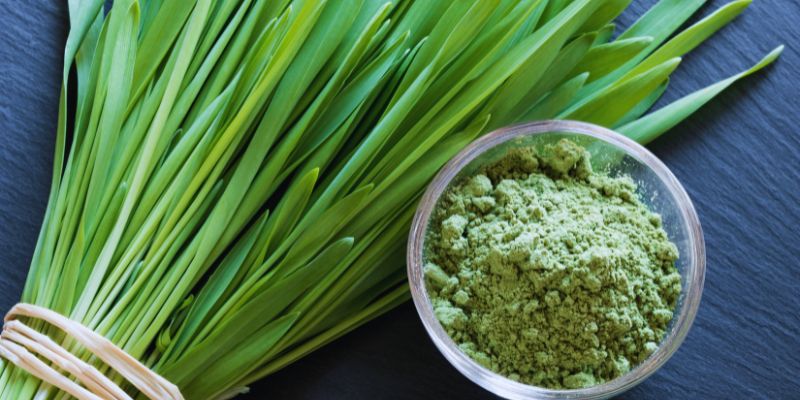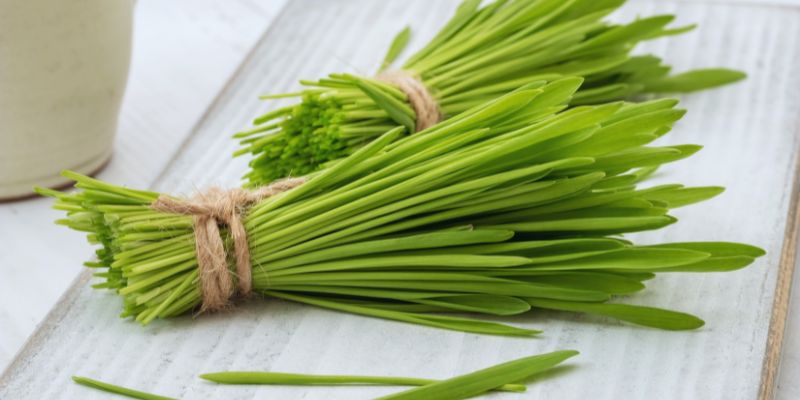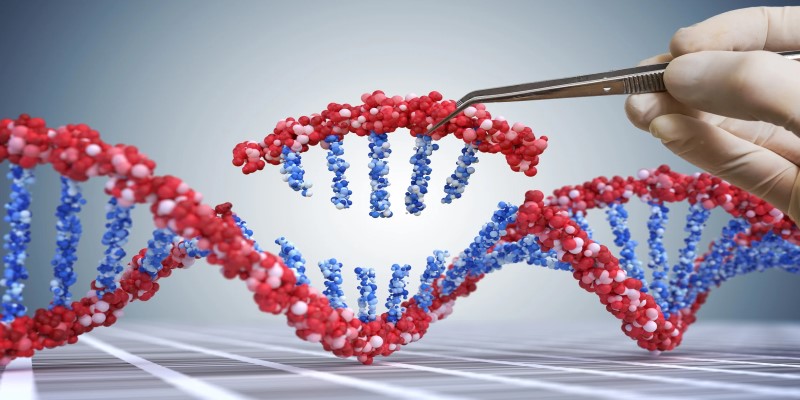What Are The Health Benefits of Barley Grass: Everything You Need To Know
Advertisement
Barley grass, or barley greens, is the fourth largest crop worldwide after rice, wheat, and corn. This adaptable grain can be used in various recipes because of its mildly nutty flavor and slightly chewy texture. Barley greens are rich in fiber and loaded with various super-healthy nutrients. Therefore, they benefit your heart, immune system, and bones.
Barley also helps with weight loss, prevents diabetes, and fights cancer. You must be thinking of adding fresh barley to your diet, but that's challenging to find. So, remember that it is also available in powder form; you can go for that. But before picking up barely greens for your next meal, get to know all the remarkable health benefits of barely greens in detail here!

Nutritional Profile of Barley Grass
Due to its gluten-free nature and abundant vitamins, minerals, fiber, and amino acids, barley grass will be an excellent addition to your diet. A single service of barley grass can provide you with:
- Calories: 20
- Protein: 2 grams
- Fat: 0 grams
- Carbohydrates: 2 grams
- Sugar: 1 grams
What Are The Health Benefits Of Barley Grass?
Adding barley grass to your daily diet can help you enjoy some remarkable health benefits, including the following:
May Support Heart Health
Heart disease is the leading cause of death in people. However, choosing heart-friendly grains like barley helps you avoid it. "Beta-glucan in barley assists in reducing bad cholesterol levels, which may help prevent heart attacks caused by plaque buildup in your arteries." Additionally, barley grass includes tryptophan, gamma-aminobutyric acid (GABA), and saponarin, all associated with better heart health, lower blood pressure, and less inflammation. Two major warning signs for heart disease include higher LDL cholesterol and blood pressure. Therefore, decreasing them could save your heart!
May Promote Weight Loss
Barley may help people reduce weight by encouraging feelings of satisfaction and decreasing hunger. Its high fiber content helps to reduce appetite. Beta-glucan is a soluble fiber that is especially beneficial and tends to produce gel in your stomach. Consequently, this reduces hunger and encourages fullness. Unlike processed grains, which dissolve rapidly and make you feel hungry again, barley stays with you for longer.
May Fight Cancer
Whole grain-rich diets are often associated with a decreased risk of cancer and other chronic illnesses. Barley's significant fiber content is key. Additionally, barley possesses immune-stimulating and anti-inflammatory properties that may help against various cancers. It has polyphenols and vitamin E. Both of these prevent cell destruction, which can cause the development of tumors. Additionally, some studies indicate that barley's nutrients may help prevent breast cancer.
May Lower The Risk Of Diabetes
Foods rich in sugar and low in fiber typically cause your blood sugar to surge rapidly. Insulin, a hormone that lowers blood sugar, is discharged by your body in response to this surge. Diabetes may eventually result from this continuous process, but it barley can help stop the cycle. Barley consumption lowers the rate at which the gut absorbs sugar. Although no meal may prevent diabetes, barley is an ideal way to reduce the risk. According to a study, barley eaters had lower post-meal insulin and glucose levels than those who consumed other grains.
May Serve As Detoxification
Chlorophyll, a substance that helps plants transform sunlight into energy, is plentiful in barley grass. By adding oxygen into the bloodstream, chlorophyll helps the body cleanse itself from dangerous toxins and impurities. It can attach itself to harmful substances and remove them. Barley grass heals harmed cells and tissues while providing defense from radiation and cellular harm. Because it is such a strong cleaner, it is advised to consume barley regularly to prevent nausea, rashes, and headaches.

May Improve Bone Health
The primary component of bones is calcium, and maintaining healthy bones requires a diet high in this mineral. Barley grass contains calcium, which can help stop or cure osteoporosis. Additionally, it can help maintain the health of your teeth, particularly when paired with the phosphorus that barley grass also contains. Magnesium from barley maintains strong bones and promotes muscle and nerve activity.
May Reduce Your Risk Of Gallbladder Surgery
Gallstones may also be avoided because of barley's high level of fiber. These stones can develop naturally in your gallbladder (a little organ beneath your liver). Your body needs the bile acids produced by the gallbladder to dissolve fat. Gallstones typically don't create any noticeable signs. Large gallstones, however, can occasionally become lodged in a gallbladder tract and cause severe abdominal pain. The gallbladder must be removed surgically in these situations. Barley has an insoluble fiber that may help lower the risk of gallbladder surgery and stop gallstones from forming. Compared to participants on the protein-rich diet, those on the fiber-rich diet had a thrice higher chance of having healthy gallbladders.
Helps To Boost Your Immunity
Vitamins, minerals, amino acids, antioxidants, and enzymes are essential components that barley grass naturally contains in abundance. These nutrients boost the immune system. It has a very high vitamin C content, essential for the body's general health and defense against viruses and bacteria. White blood cells are 20 times more vitamin C-rich than other cells, and they need to be continuously regenerated for the immune system to function at its best. Barley grass is rich in the amino acid "arginine" and other vitamins and minerals that strengthen the immune system. It works particularly well to promote the body's healing process after burns, wounds, and other ailments.
How To Ad Barley Grass In Your Diet?
Barley is inexpensive and very simple to incorporate into your diet. For example, you can:
- Substitute barley grass for white pasta or couscous as a side dish.
- Barley is another excellent substitute for white rice in recipes like risotto or pilaf.
- Additionally, barley can be enjoyed as soups, stuffings, stews, salads, and breads.
- Another option is to pick up barley-based whole-grain bread.
- If not, add barley to dishes for an intriguing twist; barley ice cream and barley pudding are two examples.
Conclusion:
Barley is a nutritious grain. It is abundant in minerals, vitamins, and other healthy plant substances. The majority of its health advantages, from improved digestion to decreased appetite and weight loss, are due to its high fiber content. Additionally, incorporating barley into your diet may help prevent chronic illnesses like diabetes, heart disease, and even some types of cancer. Avoid processed, pearled barley and only use whole-grain types, such as hulled or barley grits, flakes, and flour, for maximum advantages.
On this page
Nutritional Profile of Barley Grass What Are The Health Benefits Of Barley Grass? May Support Heart Health May Promote Weight Loss May Fight Cancer May Lower The Risk Of Diabetes May Serve As Detoxification May Improve Bone Health May Reduce Your Risk Of Gallbladder Surgery Helps To Boost Your Immunity How To Ad Barley Grass In Your Diet? Conclusion:Advertisement












